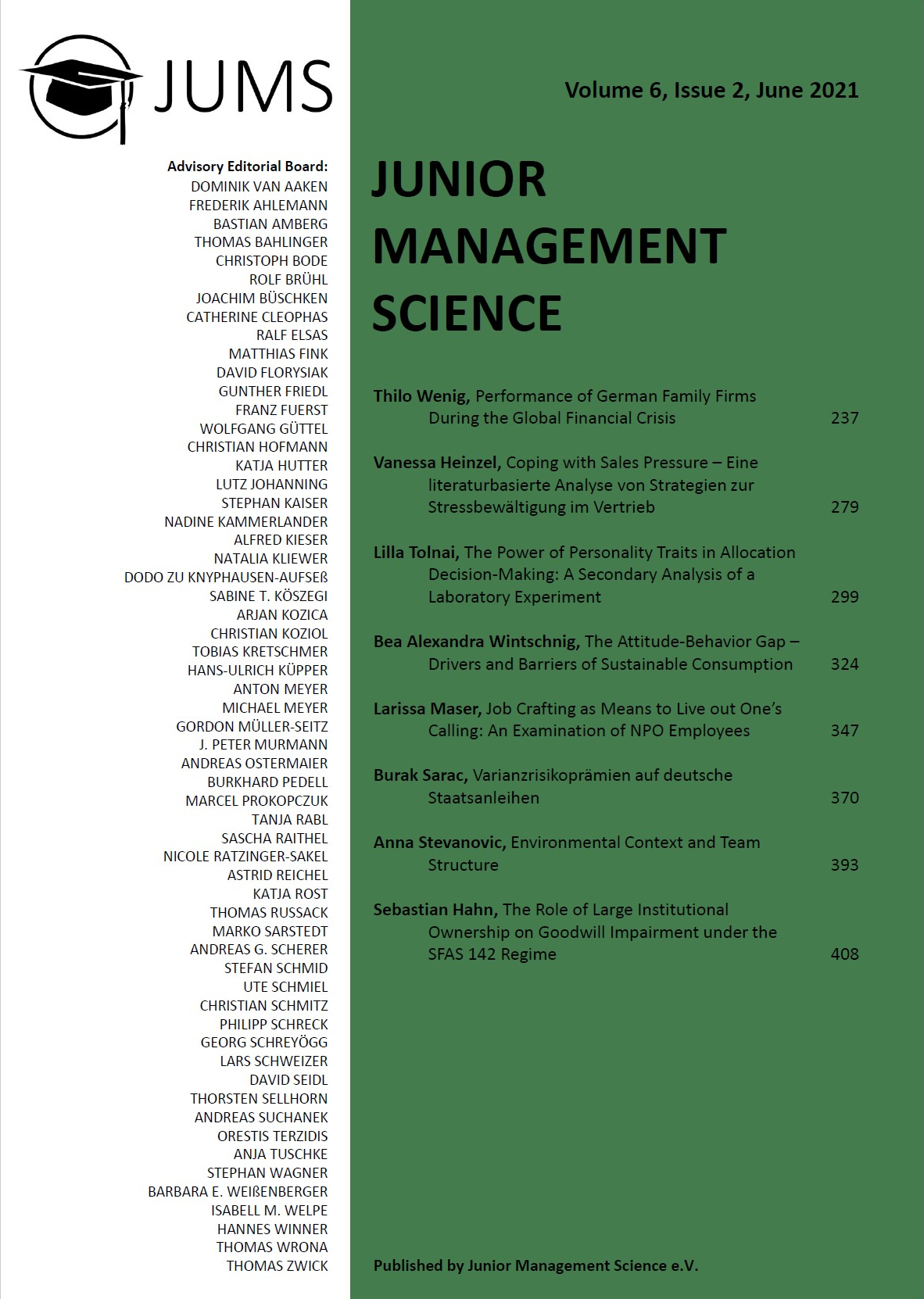Abstract
Research on family firm performance has led to inconclusive results which is why scholars called for a differentiated consideration of family firms during exogenous shocks, where costs and benefits of the inherent ownership structure are assumed to be magnified. Following these calls, I use the Global Financial Crisis of 2007 – 2009 as a unique natural experiment where firms have been moved out of their equilibrium while ownership structure maintained constant in the near term. I differentiate between true family firms and lone founder firms and hypothesize that the firm performance of both ownership structures during the Global Financial Crisis is higher than for non-family firms. In a study of 178 firms listed in the German Prime Standard, I found that lone founder ownership was significantly associated with higher firm performance during the GFC, while showing no differences in performance during the period of stable economic conditions prior to the crisis. For true family ownership, in contrast, the results suggest a general tendency of superior performance during the steady-state pre-crisis period, but it could not be established that these firms outperformed other firms during the GFC. Analogously, I found that the presence of a family CEO in true family firms is beneficial for firm performance during stable economic conditions, but the advantageousness seems to vanish in times of severe financial distress.
Keywords: Family firm; ownership; governance; performance; crisis.

Dieses Werk steht unter der Lizenz Creative Commons Namensnennung 4.0 International.
Copyright (c) 2021 Junior Management Science e.V.

